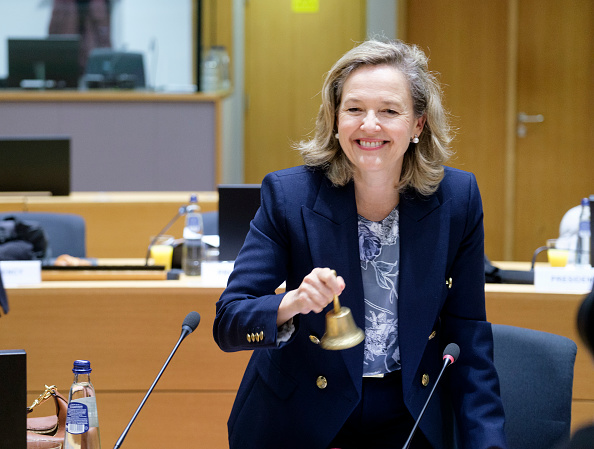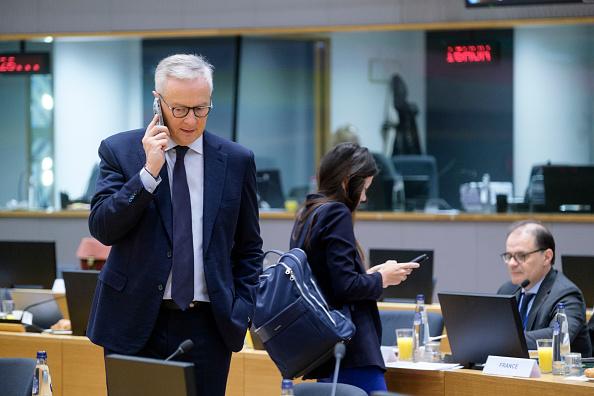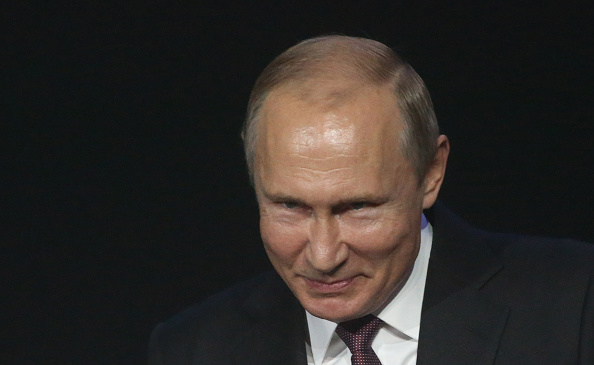The European Commission has amended its climate targets, set just last month, after farmers succeeded in changing the agenda via violent Brussels protests.
EU environment ministers met in Brussels March 25 to discuss the new targets for 2040, which the European Union was almost certain to miss, according to researchers.
In February, the EC put forward a plan for a 90 per cent reduction in greenhouse-gas emissions by 2040, relative to 1990 levels.
Denmark was the prime mover behind this 2040 target, which adds to a previous goal of reducing emissions by 55 per cent by 2030.
While the programme sets targets analysts already termed unrealistic, the EC has now erased key sections about agriculture from its February document – as farmers launched a major protest outside its HQ.
The threat of renewed protests by farmers will cloud any EU attempts to set climate policy, and “pushback from the agriculture sector will further undermine efforts to achieve the 2040 targets”, according to an Oxford Analytica report March 22.
“The Commission’s ‘Communication’ is an exercise in wishful thinking,” argued Maja Povzek, head of EU affairs for the Clean Air Task Force.
“The ambition is laudable but the conditions necessary to make good on that ambition will not just magically materialise,” she stated.
Other critics have likewise attacked what they see as a lack of detail on key areas in the EC proposals.
“Omitting the decarbonisation of the heating and cooling sector – one of Europe’s largest energy users” was “akin to benching the star player of our team”, said Patrick ten Brink, secretary-general of the European Environmental Bureau, a network of European environmental associations.
Perhaps not so surprisingly, in light of recent EU-wide farmers’ protests, the 2040 goals skip over any mention of the agriculture sector – to some alarm.
“Less satisfactory,” said Dutch MEP Bas Eickhout, is that “the Commission does not mention the agricultural sector at all”.
This is a result of the EC cutting the entire section relating to agriculture from its original draft. A previous version had said that, by 2040, the sector would need to cut its non-CO2 emissions by 30 per cent from 2015 levels.
“You can put it away in this communication, but that doesn’t make the problem go away,” argued Eickhout, who is vice-chair of the European Parliament’s Green group.
In addition, any hope of meeting the EC 2040 targets will require full decarbonisation of the energy industry, a goal analysts say the EU will not achieve by then.
“The power sector must come close to total decarbonisation to meet the goals under existing plans,” which is a near-impossible task in this time-frame, Oxford Analytica argued.
While the EU’s solar sector has grown by 40 per cent or more annually over the past three years, the wind sector – which provides twice as much electricity – significantly lags the 30GW of new capacity a year needed to realise the 2030 ambitions.
The 2040 target will put particular pressure on three countries that still intend to use coal for power generation after 2030; Germany only plans to phase out coal by 2038, while Czechia intends to stop using it for power generation by 2033.
Poland has no plans at all to get rid of coal before 2049.
Even as environment ministers prepare to gather to discuss the proposals, it will be the task of the next European Parliament and European Commission to actually adopt the targets – and try to enforce them.
Both bodies will be re-elected this year amid “a backlash to the EU’s Green Deal”, which “is not exclusive to far-right parties, but is also present within centrist parties”, pointed out Stephanie Luke, a researcher at the academic think-tank UK in a Changing Europe.





